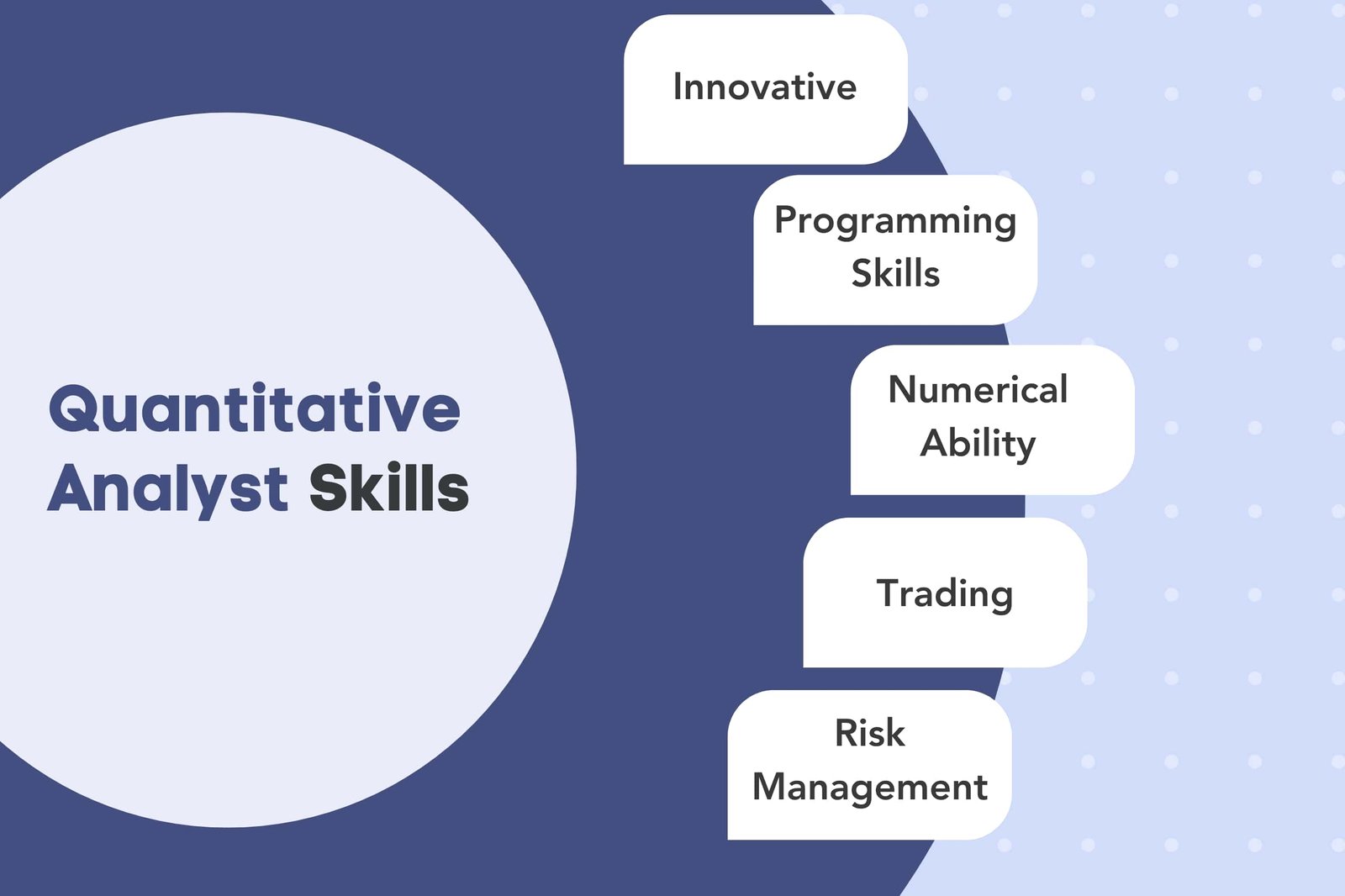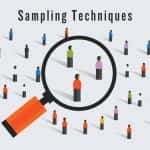Quantitative Analysts are the professionals who focus on the creation of complex models of computation that helps businesses understand their financial conditions better. Success in the field of Quantitative Analysts depend largely on the wide range of skills, technical knowledge, accuracy and fluency in communication. If you want to consider a career as a Quantitative Analyst, you need to be familiar with the skills and job description of the role. The following blog will take you on a journey to know all about a career as a Quantitative Analyst.
What is a Quantitative Analyst?
Considering it as a career option, Quantitative Analysts are those who use Quantitative Methodologies in supporting investment firms, fund managers, insurance and stock firms. They are involved in making crucial financial decisions that contribute towards the growth of an organisation. For conducting and performing Quantitative Analysis, these specialists indulge in the field of financial, economic, mathematical, statistical and computer chance fields.
What does a Quantitative Analyst Do?
Quantitative Analyst Job Role
With the role of Quantitative Analyst, the responsibilities in market research and finding solutions for critical financial problems using descriptive and inferential statistics emerge. These specialists make use of the environmental studies and financial models for examining and evaluating the performances of firms.
By collaborating with financial analysts, these group of professionals develop appropriate variables and metrics that help in assessing performance of security trading platforms and the market. subsequently, Quantitative Analysts ensure in providing in-depth reports that include detail about their findings and offers interpretations of the analysed data for decision-making. Quantitative Analysts are also responsible for verifying the accuracy of data processing techniques. Also know Quantitative Analyst vs Data Scientist
Role and Responsibilities
The position of a Quantitative Analyst enlists certain specific duties within an organisation which may vary from one firm to another. However, there are certain key roles which remain the same and consists of the following;
Making Modelling Decisions: You are required to make assumptions on modelling as one of the crucial roles as a Quantitative Analyst. Accordingly, you need to indulge in research, examining market trends and data and then provide the necessary conclusions.
Design Quantitative Model: as a part of your job description, you would require to cheating and putting into action is the role of a Quantitative Analyst.
Conducting Statistical Analyses: being a Quantitative Analyst requires you to carry out daily periodic statistical an analysis like risk analytics, loan analytics, etc.
Perform Coding: Coding remains one of the most essential skills for technical professionals and having a strong background in computer programming.
Model Specifications: This involves considering the model’s specifications and gathering relevant data.
Testing: Additionally, you will be required to test new versions of models, goods, and analytical software as part of your job responsibilities.
Collaborate: Furthermore, collaboration with physicists, computer engineers, and mathematicians is necessary for this role. Working with others is essential to develop the most effective tactics for Data Analysis.
Quantitative Analyst Skills
Innovative: To establish oneself as a successful Quantitative Analyst in a competitive market, it’s necessary to have a deep understanding of algorithms for constructing models. Thinking creatively, experimenting, and making unconventional decisions are all important traits for a quant.
Programming Skills: If you’re an aspiring Quantitative Analyst, one of the most crucial skills you require is coding. Your proficiency in programming languages like Java, Python, R, C++, etc need to be thorough. You need to be familiar with research, data mining and algorithmic trading programs to excel in this field.
Numerical Ability: Strong mathematical skills are crucial for a Quantitative Analyst’s job. Quantitative Analysts make use of their expertise in different areas like mathematics and Data Analysis for evaluating data, enabling business to make strategic decisions. A minor mistake in the field in terms of analysis of financial data may impact the company from its very core.
Trading: You need to have a thorough knowledge and understanding of the latest progress made by the financial industry for working as a Quantitative Analyst. An analyst must be capable of designing a trading strategy from the ground up, incorporating algorithmic and statistical tools.
Risk Management: Risk management skills are critical in the field of Quantitative Analysis. A Quantitative Analyst must have a thorough understanding of algorithmic trading and predictive modelling to develop methods that avoid or significantly reduce exposure to market volatility.
How to become a Quantitative Analyst?
The Quantitative Analyst Career path may require you to consider the following aspects that will help you become an expert in the market:
Education Requirements:
If you want to begin your career as a Quantitative Analyst, a bachelor’s degree in the field of computer science, statistics or mathematics may be required. Generally, it takes around 3-4 years to complete graduation in the field. However, master’s or Ph.D might also be preferred by some companies who need higher qualifications for their employees.
Certifications:
Quantitative analysts can obtain certifications similar that can help you get a job in the field of investment banking and others. The online certification will allow you to become a professional who is knowledgeable in various field. Consequently, it includes economics, financial ethics, security analysis, accounting, and wealth management. You might be abe
Advancement Opportunities
The opportunities to advance in the field of Quantitative Analyst is quite lucrative considering that it is possible for you to start as an analyst. As a result, you can be moving on to become an associate while gaining experience in the field. As you keep working and gain more experience, you can experience promotional opportunities to higher ranks or to management positions.
Quantitative Analyst Salary
Quantitative Analyst Salary may vary from one organisation to another based on the industry that they operate in. Furthermore, it also depends on your prior experience, and their education level. Below mentioned are the Quantitative Analyst Salary in India and in the USA focusing on the average salary level.
- Quantitative analyst in the United States can expect to earn an average annual salary of $154,114.
- The range of salary for a Quantitative Analyst in India ranges from 3.1 lakhs to 32.4 lakhs per year. However, Quantitative Analyst in India salary for Quantitative Analyst on an average is Rs 12.2 lakhs.
Conclusion
From the above blog, you now know that a career as a Quantitative Analyst is quite lucrative. It can help you have a highly promising future. With the high range of salary offered in India and abroad, you should develop your skills enough for this position. Join Pickl.AI’s Data Science courses where you can develop your skills in programming and analytics. It will enable you to become a qualified Quantitative Analyst in just three months. Its Data Analytics course will help you gain hands-on experience with real-life projects and make you an industry expert.
FAQs
Do Quantitative Analysts make a lot of money?
Yes, Quantitative Analysts in India make a lot of money. Accordingly, the average salary stands at Rs 12.2 Lakhs per annum in the most promising companies.
Is Quantitative Analysis a good career?
With the right skills, education and experience, a career in Quantitative Analysis can be highly efficient. You can find yourself with financially lucrative salary and use your stimulating intelligence for making business decisions.
How long does it take to become a quantitative Analyst?
A Bachelor’s Degree in Computer Programming, Statistics or Data Analytics, can help you complete your course within four years. A four years of bachelor’s degree is the standard time and requirement in the field. Alternatively, you can also opt for certification courses online which can help you become an industry expert. Pickl.AI offers Data Analytics course which can help you become an expert in three months.












